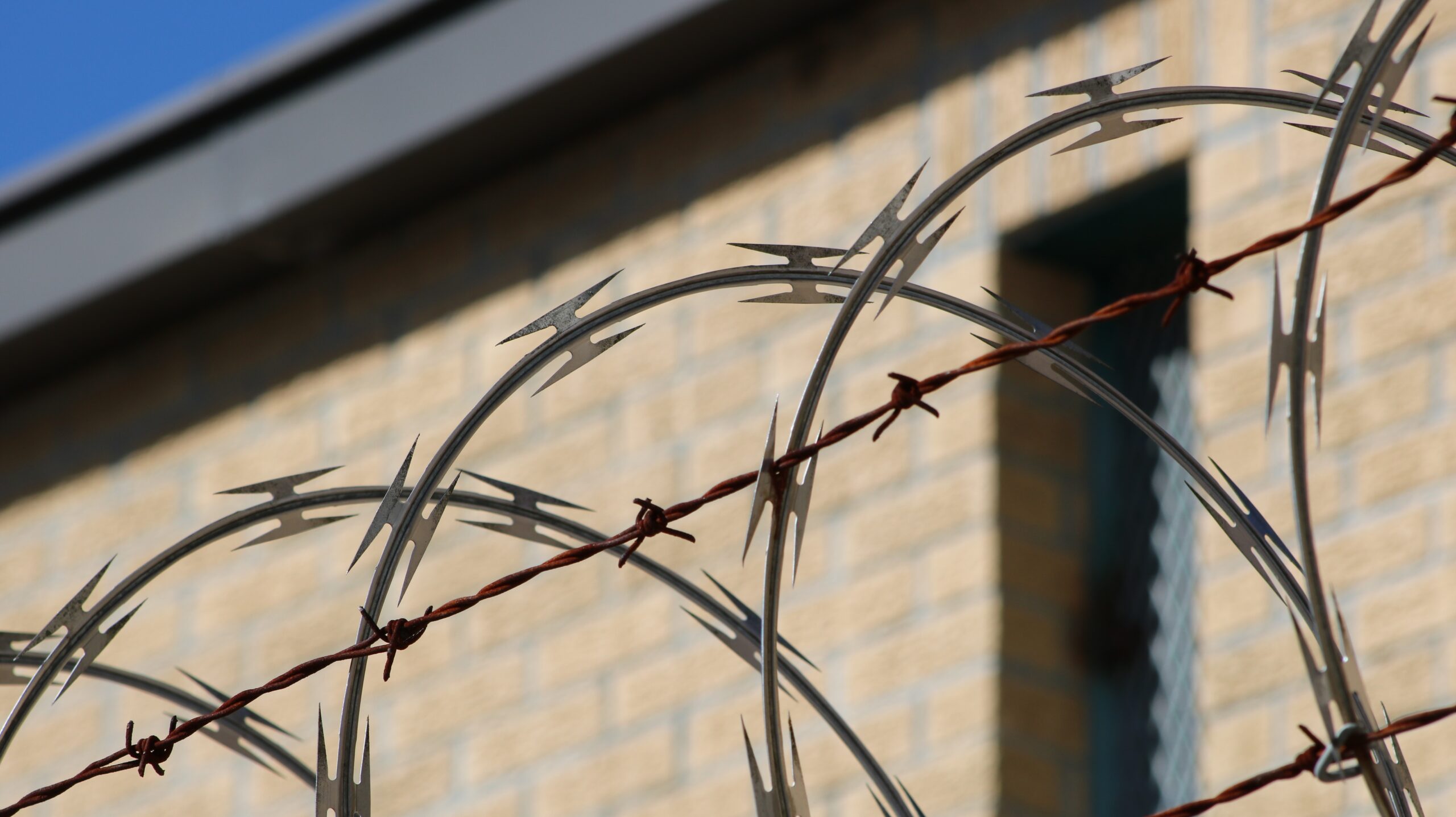By the end of June, at least 102 inmates in the Clayton County Jail and more than a dozen staff members had contracted COVID-19. At least one person had died, according to health records filed in federal court by the jail’s medical contractor.
In response to sworn testimony from inmates describing “unsanitary” conditions that only catalyzed coronavirus outbreaks in the jail, the Southern Center for Human Rights and the American Civil Liberties Union of Georgia have filed a federal lawsuit against Clayton County Sheriff Victor Hill.
The motion for a preliminary injunction asks a judge to intervene to prevent the further spread of the virus behind bars and pushes Hill to make a written plan in consultation with a public health expert.
Hill did not return WABE’s requests for comment.
Sarah Geraghty is a managing attorney with the SCHR. She told “All Things Considered” Jim Burress that the jail is at nearly 100% capacity, which makes social distancing all but impossible. She began by outlining the jail’s conditions and reflecting on sworn testimony from former and current inmates.
“For the first three months of the pandemic, very few detained people had any kind of face masks, and instead jailers instructed detainees, including elderly and medically vulnerable people to use a towel, or a T-shirt or underwear as a mask,” Geraghty said.
She said that the best detainees can expect is four ounces of liquid soap per week, which is sometimes not even provided.
“People are not regularly provided with sanitation and other cleaning supplies,” she said. “People are using bits of toilet paper and socks and body soap to try to sanitize the surfaces of their cells.”
The sworn declarations filed in the case, Geraghty said, give a disturbing sense of people’s experiences.
One inmate mentioned in the brief, W.L.M, talks about how the cells and dorm common areas are covered in black mold, and cleaning is irregular.
“Common areas and surfaces, including phones, kiosks, and showers, are not cleaned or wiped down between uses,” W.L.M told attorneys.
“On a typical day, we remain in our cells for 23 hours. Sometimes we do not get out at all. I have not been outside during my two months in the jail. I have never been issued a towel or washcloth during my time at the jail. For most of my time in jail, I used my socks as both my towel and my washcloth.”
He also spoke about spending a night in a cell he shared with cellmates and how he became so sick that he was having difficulty breathing.
W.L.M said that one man in his dorm tested positive for COVID-19 in mid-May — after that, he and his cellmates were given masks for the first time inside the jail and were placed on lockdown for the next six days.
“During this time, we were not permitted to leave our cells at all, not even to shower or to make a phone call,” W.L.M. said.
The two weeks after my COVID-19 test, including the time we were under lockdown, were some of the darkest days of my life.”
He told attorneys that he began to experience severe symptoms and excruciating pain, and one night stood out as his condition took a turn for the worse.
“I began to feel severe pain in my lungs; it felt as if my lungs were going to collapse. I could not breathe. I began to bang on my cell door because the emergency call button in my cell does not work,” he said.
“I believed I was going to die that night.”
Eventually, the banging on the door caught the attention of a trustee, and W.L.M. began to wave toilet paper in the cell door window to flag down the corrections worker. Through the crack in the door, W.L.M explained he had difficulty breathing, and asked for an officer.
“When he returned, he told me that the officer had told him that I had to wait until count to speak with an officer. At this point in the night, the next count was over six hours away,” he said.
Clayton officials, including Hill, had previously denied any coronavirus infections during the first few months of the pandemic. The Southern Center had filed another suit in Clayton County Superior Court in April that claimed Hill violated Georgia’s Open Records Act.
Attorneys told WABE’s “Morning Edition” in May that Hill had refused to release how many inmates had tested positive for the coronavirus, or if any had even been screened.
The current federal lawsuit also argues that Hill has no current system to ensure people get prompt medical attention.
A review from a corrections security expert, who has more than four decades of experience working to improve confinement conditions in adult and juvenile corrections, concluded that Hill has not followed CDC recommendations and did not even meet “minimally adequate” requirements.
That included reports of cell overcrowding, and that Hill failed to provide measures that any “reasonable correctional administrator would know” in the context of the coronavirus pandemic.
Other “failures” found in the report include the absence of a written policy and providing inmates with knowledge about preventing the spread of COVID-19; inadequate cleaning and sanitation; barriers for inmates trying to submit medical requests; and an overall failure to isolate and care for people who have the coronavirus in the jail.









